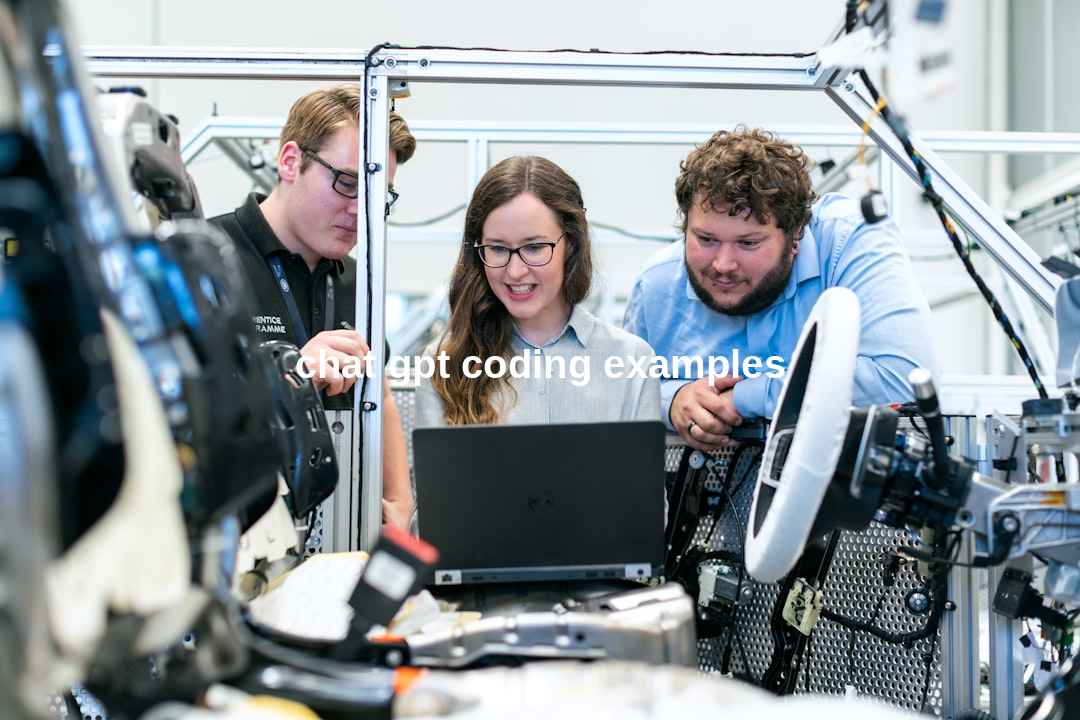The Rise of AI Titans: My Journey Through the World of GitHub Copilot and ChatGPT
Imagine living at the edge of a technological revolution—it’s electrifying! I find myself caught in the exhilarating surge of AI technology, filled with a curiosity that propels me forward. When I think about the titans reshaping today’s landscape, GitHub Copilot and OpenAI’s ChatGPT stand at the forefront of my mind. These incredible tools aren’t just innovations; they’re brilliant forces transforming both software development and conversational AI in ways original and awe-inspiring. I’ve been fortunate enough to immerse myself in their ever-expanding capabilities, and today, I want to take you on this journey with me.
Unveiling the Giants of Generative AI: My Exploration of Two Cutting-Edge Tools
Generative AI is revolutionizing the way we blend productivity with creativity, taking center stage in modern tech. As I delve into tools like GitHub Copilot and ChatGPT, each moment resonates with an artist’s touch, each stroke painting a vivid picture on the canvas of technology. They possess a mystique akin to watching a conductor orchestrate a symphony, turning chaos into harmony. I feel the rhythm of efficiency these tools introduce, inspiring new realms of innovation and artistic expression.
Navigating the Realm of Code Generation with GitHub Copilot
Imagine the satisfaction of snapping your fingers and feeling as though you’ve summoned an expert coder to your side. That’s how GitHub Copilot feels—a seamless partner aiding me as my fingers dance over the keyboard, whispering elegant and sophisticated snippets of code into existence. This AI, powered by OpenAI’s Codex model, stands as my steadfast ally in the coding labyrinth, and its adaptability astounds me.
Every encounter with GitHub Copilot is a testament to its prowess; it’s like having a seasoned developer sharing ideas right over my shoulder. Its power unfolds when I align my intent with its suggestions, revealing vast potentials that elevate both the speed and quality of my work. Navigating complex coding scenarios becomes a breeze when Copilot transforms mundane trials into opportunities for incredible solutions.
Amplifying Code Excellence: My Journey with GitHub Copilot
GitHub Copilot breathes new life into the coding landscape, delivering contextually aware suggestions so seamlessly that they become a natural part of my workflow. Whether I’m diving headfirst into complex projects or just getting acquainted with the art of coding, Copilot stands as my trusty companion. With its assistance, coding feels less like a chore and more like a collaborative dance where creativity thrives effortlessly.
The AI-Infused Coding Companion
From the moment I integrated GitHub Copilot into my Visual Studio Code environment, it has woven itself into the fabric of my coding journey. It’s like having a genius conductor guiding an orchestra, where every suggestion feels intuitive—I simply nod in appreciation as I move forward. The expansive open-source code database at its disposal empowers me to leave tedious boilerplate behind, allowing my creativity to flourish.
Enhanced Productivity with AI
Yet, the magic extends beyond mere code snippets. Copilot becomes a beacon of productivity, lightening the load of laborious tasks. Hunting for elusive segments of code transforms from an odyssey into a swift and delightful endeavor. As my debugging intervals diminish, the previously daunting timelines for projects become comfortably achievable. This newfound efficiency opens doors to expand my craft further and tackle more ambitious projects.
I frequently think about how organizations strive for supremacy in today’s competitive environment. Teams and businesses gravitate towards GitHub Copilot like moths to a flame, eager to harness its transformative powers within their development processes.
Beyond Code: The Multifaceted Applications of ChatGPT
The shift from code to conversation is an inspiring transition, where ChatGPT takes center stage in my toolkit. This AI doesn’t just assist with software development—its capabilities span a myriad of applications, redefining the boundaries of interaction. Whether it’s generating compelling content or managing customer interactions with flair, ChatGPT performs these tasks with a touch of magic that continued to dazzle me.
AI for Conversation and Content Creation
ChatGPT often leaves me in awe with its ability to generate captivating, contextual conversations. It feels as though I’m communicating with a savvy linguist, always ready to craft witty emails, well-structured essays, or poetry imbued with emotion. This effortless linguistic enchantment makes me wonder if there isn’t a hidden savant residing somewhere in its coding.
Expanding the Horizon of AI Interaction
Natural language processing is where ChatGPT truly shines, inviting me to interact via APIs, chatbots, and virtual assistants. I’m fascinated by how it expands AI’s potential across diverse sectors, creating experiences that feel genuine and human-like. These flower-like virtual dialogues blossom into new avenues of connection, making every interaction an insightful journey.
A Comparative Analysis: Feature Sets, Accessibility, and User Experience
When I sit back to evaluate GitHub Copilot and ChatGPT, an intriguing dichotomy emerges—the balance between specialization and extensive applicability. GitHub Copilot is the epitome of focused expertise, a sprinter in the coding realm, whereas ChatGPT excels as an all-round athlete, comfortable across diverse language applications.
Direct Coding Support vs. Broad Conversational Abilities
GitHub Copilot provides unmatched direct support to programmers, tightly integrating itself into my creative workflow. In stark contrast, ChatGPT casts a wider net, mastering language and dialogue effortlessly and crafting well-rounded experiences across myriad sectors.
The Importance of Context and Specialty
The true beauty of these tools lies in their design philosophies. GitHub Copilot thrives on context-specific design, deeply ingrained in the programming ecosystem to accelerate development processes. Conversely, ChatGPT’s myriad adaptations serve diverse environments, captivating interlocutors with finesse and ease, making them forget they’re engaging with an advanced algorithm.
The Verdict: Selecting the Optimal Assistant for Your Development Journey
Choosing between GitHub Copilot and ChatGPT largely hinges on personal goals and project requirements. For me, Copilot is the perfect companion during coding, acting as an AI-powered apprentice transforming the way I work. Meanwhile, ChatGPT opens doors to vast opportunities, providing versatile text generation capabilities beyond mere coding.
- GitHub Copilot: Crafted for those seeking streamlined workflows in their coding endeavors, this coding assistant integrates seamlessly into the creative environment.
- ChatGPT: Versatile and powerful, excelling in conversational tasks across varied contexts, and extending its prowess far beyond code.
I embark on this ongoing journey with excitement and invite you to join me. It’s a road filled with discoveries, innovations, and learning opportunities. We stand on the brink of a future where growth and development intertwine with the guidance of these awe-inspiring AI marvels.
Frequently Asked Questions: Diving Deeper into AI
Is ChatGPT better than GitHub Copilot?
When pondering whether ChatGPT is superior, I remind myself that it entirely depends on specific needs. GitHub Copilot offers unmatched precision within coding realms, whereas ChatGPT excels in a spectrum of language-related tasks. My choice is situational, aligned with the demands of each moment.
Does GitHub Copilot use GPT?
Yes, indeed! GitHub Copilot derives its power from the advanced GPT-4 architecture, enhancing its comprehension and functionality within coding ecosystems. This integration ensures a smooth and user-friendly experience, even when navigating complex challenges.
What is better than GitHub Copilot?
While Copilot is prominent, alternatives like AWS CodeWhisperer and Tabnine are impressive in their own right. Each offers unique strengths and can be valuable allies in meeting my coding needs, depending on preferences and requirements.
Is GitHub Copilot chat useful?
Absolutely! GitHub Copilot Chat is a standout feature, translating intricate code into understandable formats and bridging communication gaps between developers and stakeholders.
In this thrilling realm of AI, every encounter with GitHub Copilot and ChatGPT signifies the onset of an exhilarating adventure. I invite you to embrace this revolution along with me. I promise it’s a journey brimming with wonders and unlimited potential. With every breakthrough, we step boldly into an anticipated future full of promise. I’m eager to explore alongside these transformative AI entities.
Let’s navigate this evolving narrative together and uncover the endless possibilities that lie ahead. As I continue exploring AI, I find myself filled with excitement and a sense of belonging within this revolution. Technology blended with creativity fuels my drive to venture into uncharted territories. Join me on this adventure as we wield the boundless potential of AI, transforming the future of work, collaboration, and communication. Together, let’s celebrate the remarkable capabilities of GitHub Copilot and ChatGPT and gear up to embrace the next wave of AI advancements.



